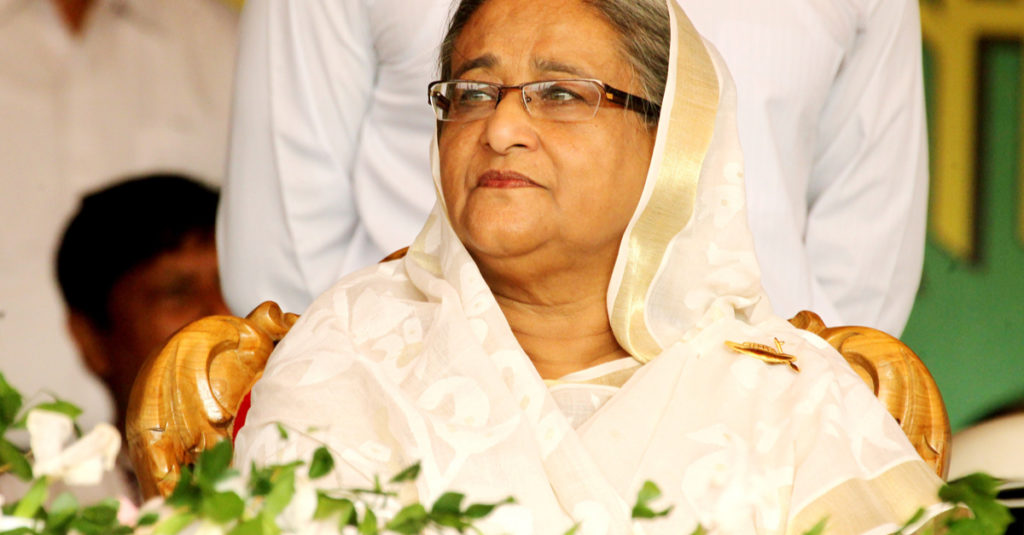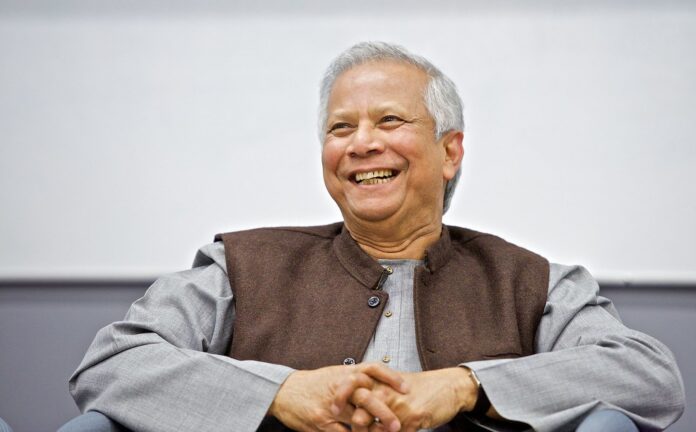A day after the fall of Sheikh Hasina’s regime in Bangladesh, Muhammad Yunus became the head of the transitional government of the country. But who exactly is the 83 year old financial pioneer?
Yunus, popularly known as Dr. Yunus, is Bangladesh’s lone Nobel laureate and the country’s most renowned “global citizen” who also has received honours like the Presidential Medal of Freedom, the highest civilian award in the U.S.
A social entrepreneur, banker, and economist best known for his pioneering work in microfinance and social business, he gained international fame for founding the Grameen Bank in 1983.
The Grameen Bank was established to provide small loans to impoverished people, primarily women, in Bangladesh who lacked access to traditional banking services.
The idea was to offer financial assistance without requiring collateral, fostering entrepreneurship among the poor.
Yunus’s approach to microcredit was revolutionary because it empowered people to start or expand small businesses, thus improving their economic situation.
His work demonstrated that people who are considered “too poor” to receive conventional loans could successfully repay them and improve their lives.
Subscribe to our newsletter and stay updated on the latest news and updates from around the Muslim world!
In recognition of his contribution to economic development and poverty reduction, Yunus was awarded the Nobel Peace Prize in 2006.
But the strained relationship between Hasina and Yunus was a widely known fact, both locally and globally.
Hasina, who was forced to resign and fled Bangladesh in the face of a student-led mass upsurge, had repeatedly criticized Yunus, labeling him a “bloodsucker” for allegedly using coercion to recover loans from impoverished rural women while he was the CEO of Grameen Bank.

After coming to power in 2008, Hasina’s administration launched a series of investigations into Yunus. In 2011, he was dismissed from his role as managing director of Grameen Bank, following a government inquiry that found he had violated the bank’s retirement policies.
Two years later, Yunus faced allegations of receiving funds without government approval, including his Nobel Peace Prize award and book royalties.
Some analysts suggest that the current regime’s animosity toward Yunus is rooted in what they view as a strategic misstep he made about 15 years ago.
In 2007, leveraging his national fame as Bangladesh’s first Nobel Laureate, Yunus founded his own political party, Nagorik Shakti (Citizens’ Power), and was considered a potential leader of a caretaker government that could steer Bangladeshi politics in a new direction.
Although he soon abandoned this plan, Hasina and the Awami League party appear to remain wary of the possibility that Yunus, with his influential connections in the West, could emerge as a viable Prime Ministerial candidate.
Yunus was born in 1940 in Chittagong, a port city in Bangladesh. He completed his early education at Dhaka University in Bangladesh and later received a Fulbright scholarship to study economics at Vanderbilt University in the U.S., where he earned his PhD in economics in 1969.
Following his PhD, Yunus served as an assistant professor of economics at Middle Tennessee State University. In the mid-1970s, he returned to Bangladesh to lead the economics department at Chittagong University.
During this period, Yunus began providing small personal loans to impoverished basket weavers, an initiative that eventually led him to establish the Grameen Bank in 1983.
The bank specialised in offering small loans (as little as $20) to women in rural Bangladesh to help them start small enterprises such as poultry farming, weaving, or selling goods.
These loans were provided without requiring collateral, with repayment relying on trust and peer pressure.
This innovative approach changed the lives of millions of people, earning Muhammad Yunus the title “Banker to the Poor.” The Grameen Bank model has since been adopted in over 100 countries around the globe.























